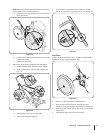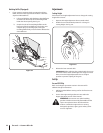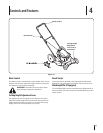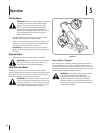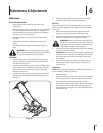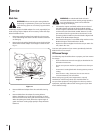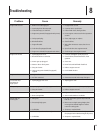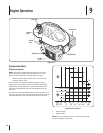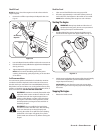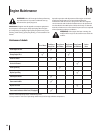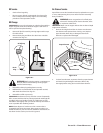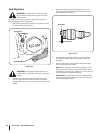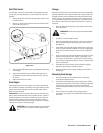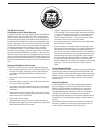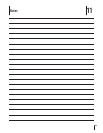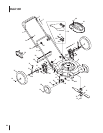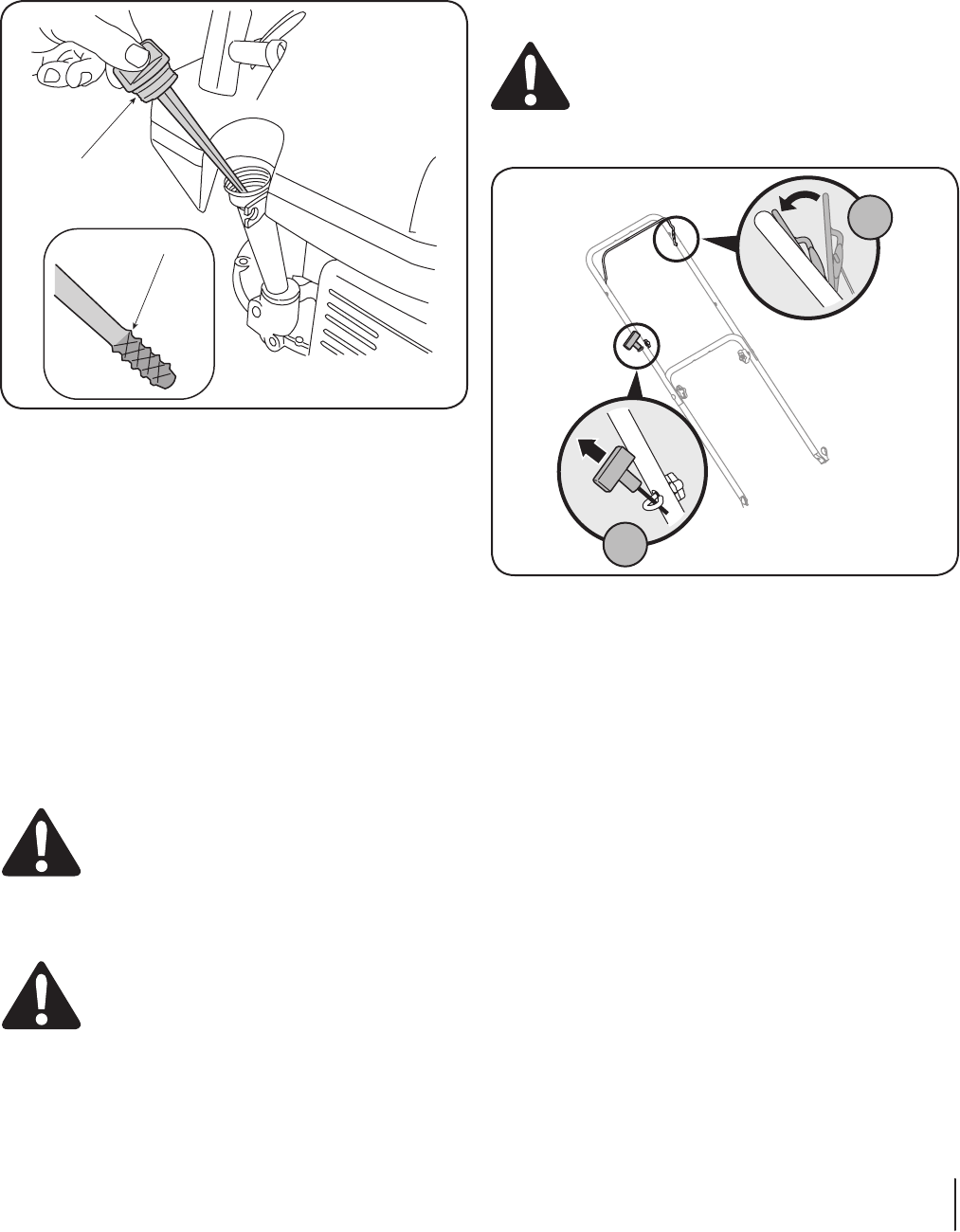
17se c t i O n 9 — en g i n e Op e r a t i O n
Check Fuel Level
Clean around fuel fill before removing cap to fuel.1.
Fill tank to approximately 1-inch below lowest portion of 2.
neck to allow for fuel expansion. Be careful not to overfill.
NOTE: Before refueling, allow engine to cool 2 minutes.
Starting The Engine
WARNING: Always keep hands and feet clear of
equipment moving parts. Do not use a pressurized
starting fluid. Vapors are flammable.
Standing behind the mower, depress the blade control 1.
handle and hold it against the upper handle. See Fig. 9-3.
Pull the starter grip lightly until resistance is felt, then pull rapidly 2.
to overcome compression, prevent kickback and start
engine. Repeat if necessary.
IMPORTANT: Do not allow the starter grip to snap back
against the engine. Return it gently to prevent damage to
the starter.
Stopping The Engine
Release the blade control.1.
2
1
Check Oil Level
NOTE: Be sure to check the engine on a level surface with the
engine stopped.
Remove the oil filler cap and wipe the dipstick clean. See 1.
Fig. 9-2.
Insert the dipstick into the oil filler neck, but do not screw it in.2.
If the level is low, slowly add oil to the upper limit on the dipstick. 3.
See Fig. 9-2 inset.
Tighten dipstick firmly before starting engine.4.
NOTE: Do not overfill. Overfilling with oil may cause
smoking, hard starting, spark plug fouling, or oil saturation
of air cleaner.
Fuel Recommendations
Use automotive gasoline (unleaded or low leaded to minimize
combustion chamber deposits) with a minimum of 87 octane.
Gasoline with up to 10% ethanol or 15% MTBE (Methyl Tertiary
Butyl Ether) can be used. Never use an oil/gasoline mixture, dirty
gasoline, or gasoline over 30 days old. Avoid getting dirt, dust, or
water in the fuel tank. DO NOT USE E85 GASOLINE.
WARNING: Gasoline is extremely flammable and is
explosive under certain conditions. Refuel in a well-
ventilated area with the engine stopped. Do not
smoke or allow flames or sparks in the area where
the engine is refueled or where gasoline is stored.
Avoid repeated or prolonged contact with skin or
breathing of vapor.
WARNING: Do not overfill the fuel tank (there
should be no fuel in the filler neck). After refueling,
make sure the tank cap is closed properly and
securely. Be careful not to spill fuel when refueling.
Spilled fuel or fuel vapor may ignite. If any fuel is
spilled, make sure the area is dry before starting the
engine.
Oil Fill Cap/
Dipstick
Upper Level
Figure 9-2
Figure 9-3



